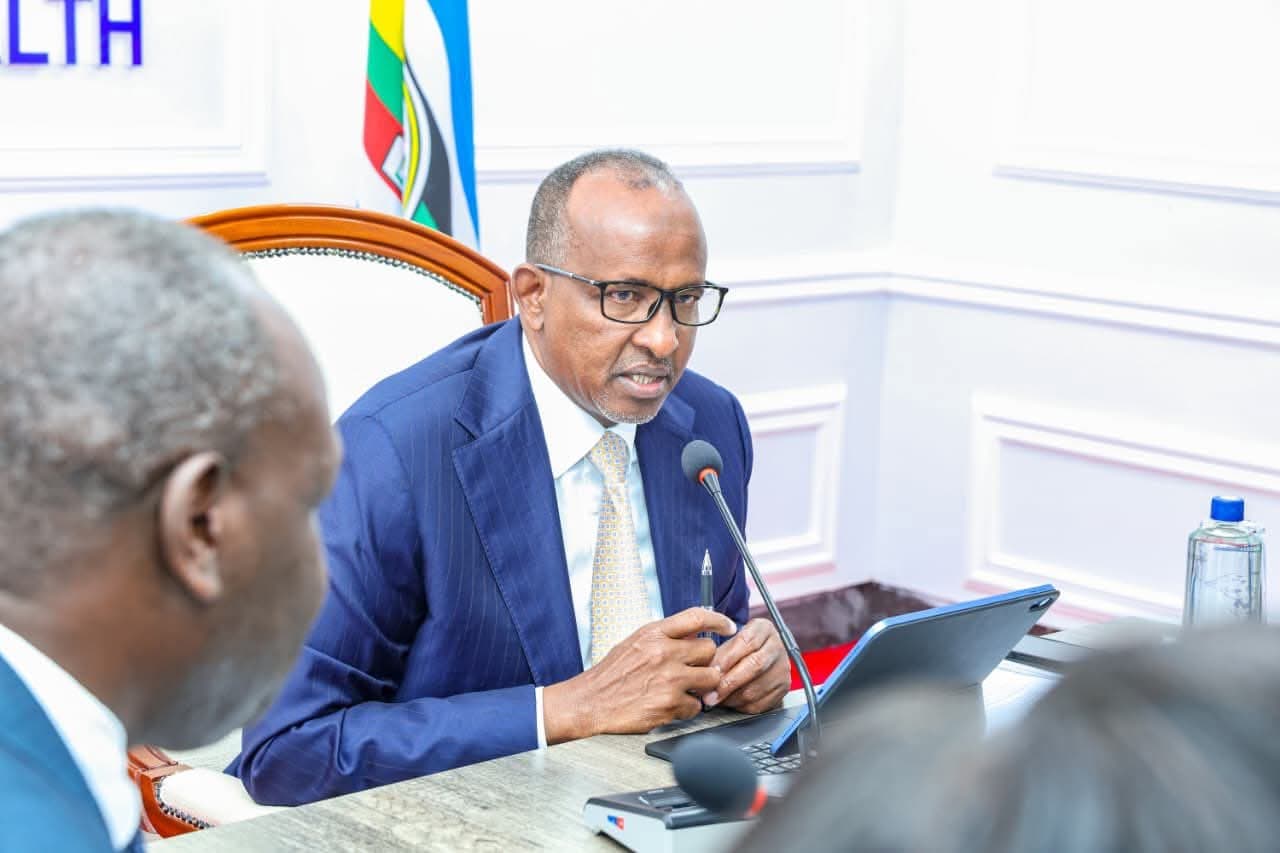We're loading the full news article for you. This includes the article content, images, author information, and related articles.
Health Cabinet Secretary Aden Duale warns that Kenya's Universal Health Coverage ambitions are at risk due to significant underfunding of two key pillars of the new Social Health Authority, threatening services for millions.

NAIROBI – Health Cabinet Secretary Aden Duale has issued a stark warning over significant funding shortfalls in Kenya's new health insurance scheme, stating the country's ambitious health reforms are in jeopardy. Appearing before the National Assembly's Departmental Committee on Health on Tuesday, October 28, 2025, Duale appealed to Parliament for increased allocations to the Social Health Authority (SHA), which officially replaced the National Health Insurance Fund (NHIF) on October 1, 2024.
The CS revealed that two of the three funds established under the Social Health Insurance Act of 2023 are critically under-resourced, threatening the rollout of Universal Health Coverage (UHC). The affected funds are the Primary Healthcare Fund (PHCF) and the Emergency, Chronic, and Critical Illness Fund (ECCIF).
The Social Health Authority is structured around three distinct funds designed to provide comprehensive healthcare. The Primary Healthcare Fund is intended to be the backbone of preventive and promotive care, covering services at community health units, dispensaries, and health centres (Levels 1 to 3). According to CS Duale, strengthening this grassroots system is essential to reducing the burden on major hospitals.
The Emergency, Chronic, and Critical Illness Fund was designed to cushion Kenyans from the catastrophic costs of conditions like cancer, chronic diseases, and emergency medical care, which often lead to families liquidating assets. The third pillar, the Social Health Insurance Fund (SHIF), is the main contributory scheme for inpatient and outpatient services, funded by a 2.75% levy on gross monthly income for salaried individuals.
“The Primary Healthcare Fund is the backbone of preventive and promotive care at the community level. We are appealing for additional resources to strengthen this system,” Duale told the committee, chaired by Seme MP James Nyikal. He stressed that without adequate financing for these two foundational funds, the entire UHC agenda risks failure.
The transition from NHIF to SHA has been fraught with difficulties. CS Duale acknowledged that legacy debts from the defunct NHIF have hindered a smooth transition, and urged Parliament to fast-track their settlement to restore financial stability in the sector. Reports from earlier in the year highlighted these challenges, with the Council of Governors in September 2025 citing a KSh10.3 billion deficit in unpaid claims to county facilities, leading to operational strain.
Furthermore, low contribution rates have raised sustainability concerns. A Ministry of Health report in February 2025 noted that of 18 million registered members at the time, only 4 million were actively contributing to the SHIF. While registration has since grown to over 27 million as of October 2025, the gap between registered members and active contributors remains a significant hurdle.
International bodies have also raised concerns. A World Bank report in May 2025 flagged major risks in the SHA's funding strategy, warning that the program was underfunded and could unfairly burden low-income earners. The report projected that SHIF would raise less than half of its annual target, exposing severe funding gaps that threaten the system's viability.
The funding deficit has direct consequences for Kenyan citizens. Inadequate resources for the Primary Healthcare Fund could weaken preventive care, leading to more complex and costly health issues down the line. A shortfall in the Emergency, Chronic, and Critical Illness Fund means that families may still face crippling out-of-pocket expenses for life-saving treatments, undermining a key promise of the SHA.
Healthcare providers have also felt the pinch. A survey by the Rural and Urban Private Hospitals Association of Kenya (RUPHA) in early 2025 showed a decline in SHA's implementation performance, with many facilities reporting irregular or non-payment of claims. This has forced some hospitals to suspend services, leaving patients stranded.
In his address to the committee, Duale also touched on other reforms, including efforts to improve the order fill rate at the Kenya Medical Supplies Authority (KEMSA) and plans to launch a national ambulance service. However, the overarching message was clear: without immediate and substantial financial intervention from Parliament, the foundational promise of accessible and affordable healthcare for all Kenyans remains on precarious ground.
Keep the conversation in one place—threads here stay linked to the story and in the forums.
Other hot threads
E-sports and Gaming Community in Kenya
Active 8 months ago
The Role of Technology in Modern Agriculture (AgriTech)
Active 8 months ago
Popular Recreational Activities Across Counties
Active 8 months ago
Investing in Youth Sports Development Programs
Active 8 months ago
Key figures and persons of interest featured in this article